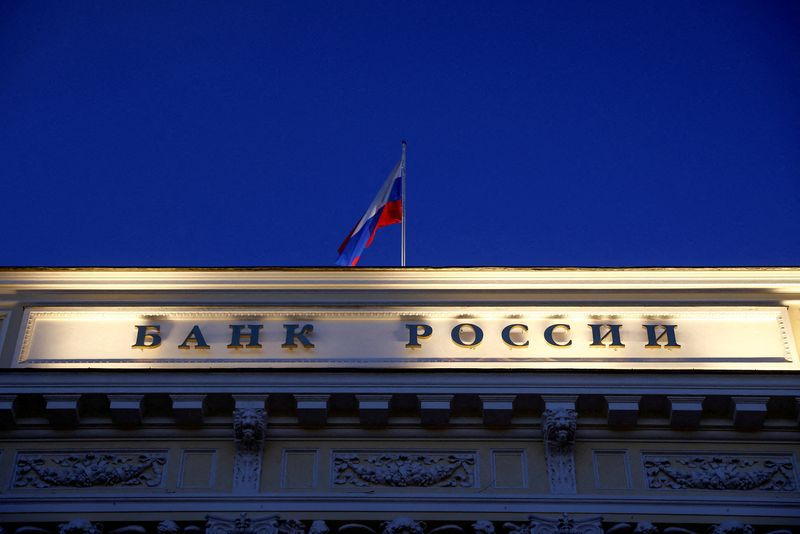 © Reuters Russia Default Risk Tumbles as Bond Payment Sent to Citi
© Reuters Russia Default Risk Tumbles as Bond Payment Sent to Citi
(Bloomberg) -- The cost of insuring Russian debt against default dropped and bond prices rose after people familiar with the matter said funds earmarked for interest payments on the Russian government’s dollar notes were sent to the payment agent.
JPMorgan has processed the funds and sent the money on to Citigroup (NYSE:C)., the people said, spurring optimism that the bonds may still be settled in dollars.
As bondholders waited to receive the $117 million, two bondholders in Asia had yet to receive payment as of 9:00 a.m. in Hong Kong on Friday. S&P Global Ratings warned that the “technical difficulties” in getting the money to investors was increasing the risk of a default -- either this time around or in the future.
Nonetheless, JPMorgan’s move caused Russian credit-default swaps to drop further Thursday after sharp declines this week, while the prices of its bonds maturing in 2023 and 2043 have rallied.
JPMorgan (NYSE:JPM) was the correspondent bank Russia used to send the payment to Citigroup, which is acting as payment agent on the bonds, the people said, asking not to be identified discussing a private matter. JPMorgan sent the money to Citigroup after it sought and received the required approvals from U.S. authorities on Wednesday, one of the people said.
Representatives for JPMorgan and Citigroup declined to comment.
Russian officials have said if the payment in dollars is blocked, then it would instead send it in rubles. Russia has a 30-day grace period to meet the payment obligations.
“If funds are not accessible for investors or if a payment is made in a currency not stipulated in the terms of the obligation and we believe that the investor does not agree to the alternative payment, we could deem this a default,” S&P analysts said in a statement, downgrading Russia’s foreign-currency rating to CC from CCC-.
Citigroup is the payment agent for about four dozen bonds tied to Russian companies, according to data compiled by Bloomberg. Some of those companies -- including MMC Norilsk Nickel PJSC (OTC:NILSY) and Gazprom PJSC (OTC:OGZPY) -- have successfully made coupon payments in recent days.
But in other cases, coupon payments may not have gone through. Citigroup this week blocked a $19.25 million interest payment sent by EuroChem Group AG, a Russian fertilizer maker, according to a person familiar with the matter. The steel and mining company Severstal warned this week that Citigroup may refrain from processing a $12.6 million interest payment due on its dollar bonds.
The drama has thrust a spotlight on banks’ back offices. The Russian Finance Ministry said it had sent the order for a $117 million interest payment on March 14 to a correspondent bank that it didn’t identify, adding that it would issue a separate comment about whether the paying agent, Citibank’s London branch, has received the payment.
As a correspondent bank, New York-based JPMorgan processes and clears payments and other transactions for financial institutions. In its role as payment agent, Citigroup, also based in New York, collects coupon payments from bond issuers and distributes those funds to investors.
“This seems to take a technical default off the table for now,” said Kaan Nazli, a money manager at Neuberger Berman in The Hague, Netherlands. “However, there is still some uncertainty over corporate debt as only a number of companies have been given leeway.”

